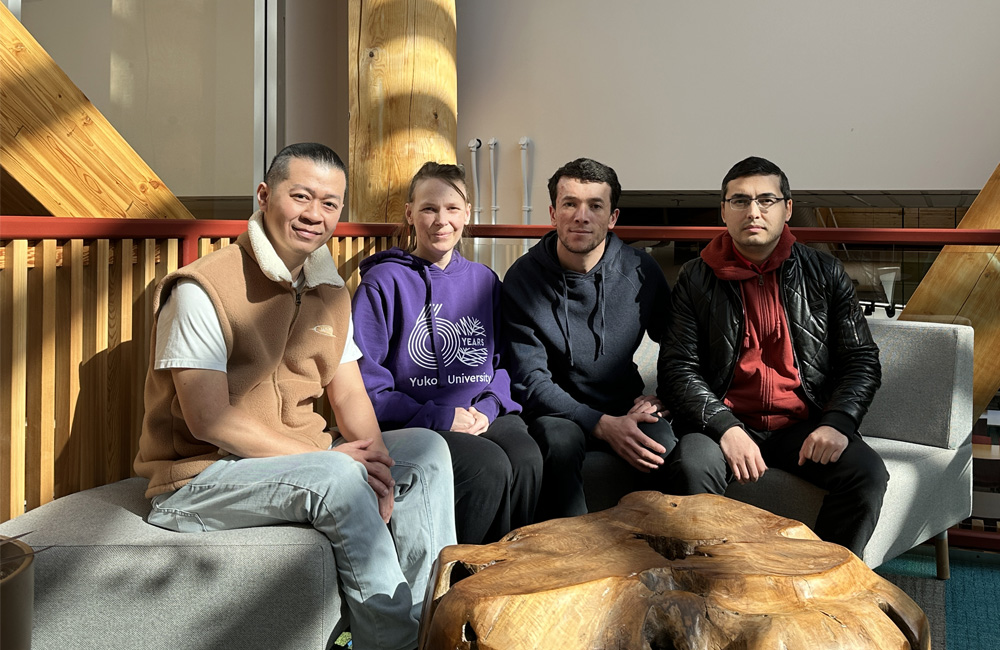Navigating the challenge: Living with Cancer when blood donation isn’t an option
A group interviewed a resilient cancer survivor about facing the obstacle of unavailable blood donation in her area. Her story offers insight and inspiration to others in similar circumstances.
Facing cancer is a journey filled with twists and turns, where every day brings new challenges and triumphs. It’s a path marked by resilience, courage, and the unwavering determination to keep moving forward, no matter the obstacles. But what happens when the very support you need, like blood donations, isn’t readily available?
For many cancer patients, blood transfusions are a lifeline, providing essential nutrients and oxygen to their bodies during treatment. However, what if you find yourself in a situation where this vital resource is scarce or unavailable altogether? It’s a daunting prospect, but one that many individuals bravely confront each day.
Imagine this: you’re in the midst of your cancer battle, undergoing rigorous treatments, when suddenly you’re told that there’s a shortage of blood donations. It’s a scenario that strikes fear into the hearts of both patients and their loved ones. Questions race through your mind: How will I cope? Will my treatment be compromised? Is there any hope?
“I was diagnosed with a cancer called Myelodysplastic Syndrome shortly after my 40th birthday, and since then, it’s been a rollercoaster of treatments, appointments, and emotions”
Blood transfusions have been a crucial part of her treatment plan, helping to replenish her blood counts and keep her strong throughout chemotherapy. However, her medical team informed her that blood testing and donation is not an option in Whitehorse Yukon. It’s been incredibly challenging for her knowing that this vital resource isn’t as readily available for her. Her blood transfusions were done in Vancouver. Her medical team wanted to test her siblings, her siblings would take a blood test and the test are then sent to Vancouver to see if they were a match so, there is the extra stress of waiting for the results.
David Patterson, the CBS’s donor relations director for B.C. and Yukon, says Yukon and Prince George is not a viable location for a donation center because it is too expensive to transport donated blood from there to the collection center in Vancouver for processing.
“We need to get it to our collection site at maximum within 24 hours of receiving it from donors,” he said, describing the limitations involved with handling blood products.
We gathered some information as to why there are some areas that are considered not a viable location for a blood donation center. Here are some reasons why a particular location might not have a blood donation facility:
- Population Size: Smaller communities may not have the population density to support a permanent blood donation center.
- Logistical Challenges: Remote or isolated locations, such as those in the northern territories, may face logistical challenges in transporting and maintaining a stable blood supply.
- Resource Allocation: Blood donation organizations often allocate resources based on demand and population needs. If there is a low demand in a specific area, resources might be focused on more populous regions.
- Partnerships with Hospitals: Blood donation facilities are often associated with hospitals and medical infrastructure. If there are no major hospitals or medical centers in the area, it might impact the presence of a dedicated blood donation facility.
- Volunteer Base: The availability of volunteers and staff to run and support a blood donation facility is essential. In smaller communities, it might be challenging to sustain a facility due to a limited pool of volunteers.
We also conducted a survey to gauge public awareness of blood donation shortages, particularly in Whitehorse, Yukon. The graph below shows the data.
Blood donation shortages can have significant consequences in healthcare settings, impacting both patients and healthcare providers. Some potential consequences include:
- Delayed or cancelled medical procedures: Blood transfusions are essential for various medical procedures, including surgeries, trauma care, and treatments for conditions like cancer and anemia. A shortage of blood donations may lead to delays or cancellations of these procedures, potentially jeopardizing patient outcomes and increasing wait times for essential care.
- Compromised patient care: Without an adequate supply of blood, healthcare providers may face challenges in providing optimal care to patients. Blood transfusions are crucial for managing conditions such as severe bleeding, anemia, and certain infections. A shortage of blood donations could compromise the quality of care and result in suboptimal treatment outcomes for patients.
- Increased mortality rates: In severe cases, blood donation shortages can contribute to increased mortality rates, particularly among patients who rely on blood transfusions to survive. Patients with conditions such as leukemia, sickle cell disease, and severe injuries may be at heightened risk if they cannot access timely transfusions due to blood shortages.
- Higher stress levels for healthcare providers: Healthcare providers are already under significant pressure, and dealing with blood donation shortages adds an additional layer of stress. They may face difficult decisions regarding patient care, resource allocation, and prioritization of treatments, leading to increased stress and burnout among medical professionals.
Stephanie was emotional when she shared to us how she was coping with this additional hurdle in her cancer journey. “It hasn’t been easy, I keep myself focusing on my son and helping my mother on her cancer journey too. I’ll admit. There have been moments of fear and uncertainty, wondering how I’ll manage without the usual support of blood transfusions. However, I’ve been trying to stay positive and focus on the things I can control. I’ve been working closely with my medical team to explore alternative treatments and strategies to support my health. Additionally, I’ve leaned heavily on my support network of friends and family for emotional support and encouragement.”
It’s inspiring to hear how Stephanie survived the cancer battle despite the challenges she was facing. She also shared a very important advice for other cancer patients who may be struggling with a similar shortage of blood donations. “My advice would be to stay informed and proactive in advocating for your health. Don’t hesitate to communicate openly with your medical team about your concerns and explore all available options together. Lean on your support network for emotional support and encouragement, and remember that you’re not alone in this journey. Stay strong and take care of yourself. Together, we can navigate these challenges with strength and resilience”.
Stephanie agreed to be interviewed and to share her story with us because she believes that advocating for increased awareness and resources to address the shortage of blood donations is not just for herself but also for other cancer patients who are in need. According to Stephanie by raising awareness and mobilizing support within the community, you can contribute to positive change and ensure that essential resources are available to those who need them most. Stephanie wanted to be an inspiration and to give hope to those people who are battling with cancer.
Living with cancer is a profound and challenging experience, made even more so when faced with obstacles like a shortage of blood donations. However, it’s important to remember that you are not defined by your circumstances; rather, it’s how you choose to respond to them that truly matters. By drawing on your inner strength, seeking support, and exploring alternative solutions, you can navigate this challenging terrain with courage and resilience. Together, we can overcome even the most formidable obstacles and emerge stronger on the other side.




